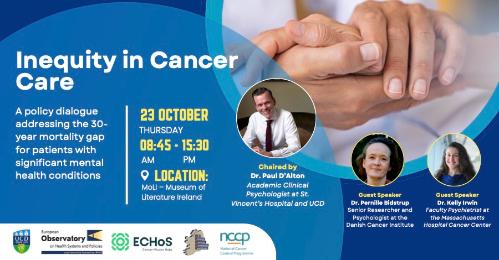IRG
Research Centres and Laboratories
- Agri Mental Health Group
- Attention & Memory Laboratory
- Baby lab
- BodyLab
- Classification & Attribution Laboratory
- Cognition, Development and Learning Lab
- Cognitive & Translational Neuroscience
- Contextual Behavioural Science Laboratory
- Eye Tracking and ImageryResearch Laboratory
- Helping Kids!
- Neuropsychology Laboratory
- Music and Math Cognition Laboratory
- Media & Entertainment Laboratory
- Perception Laboratory
- Psychology of Psychosis
- Resilience & Health Laboratory.
- Youth Mental Health Laboratory
- Laboratory Bookings
- IRG
Health Inequalities Research Group
Introduction
Research findings illustrate that health and social inequities are not inevitable, but are often rooted in systemic and psychosocial factors that are avoidable. These inequities emerge from the cumulative effects of structural discrimination—such as racism, sexism, and socioeconomic marginalization—and the chronic stress, early-life trauma, and exposure to violence that disproportionately affect certain populations.
Addressing health and social inequities requires more than interventions at the individual —it calls for a fundamental shift in how we understand and support health and wellbeing. This entails recognizing the emotional and relational dimensions of disadvantage and fostering environments that promote safety, dignity, and social inclusion in order not only to mitigate symptoms but to address the root causes of inequity.
The World Health Organization defines health equity as the absence of unfair, avoidable, and remediable differences in health outcomes among groups defined by social, economic, demographic, or geographic factors. Braveman et al. (2017) further emphasize that health equity means ensuring everyone has a fair and just opportunity to achieve their highest possible level of health—physically, mentally, and socially. Realizing this vision requires attention not only to individual psychological factors but to structural barriers.
Who we are:
Paul D’Alton is PI and the director of The School of Psychology Inequalities Research Group. Isaiah Gitonga is the Groups Postdoc. This research group works in close collaboration with key national and international partners, including:
- Health Service Executive (HSE) - The National Cancer Control Programme.
- Severe Mental Illness and Cancer Research Network - (opens in a new window)Engage Initiative including the BRIDGE and the STAR from Denmark
- Patient advocacy groups and service user representatives
Our projects: The 30-Year Mortality Gap Project
The 30-Year Mortality Gap Project
Cancer Care for People with Significant Mental Health Difficulty (SMHD)
About the 30 Year Mortality Gap Project
People living with SMHD such as schizophrenia, bipolar disorder, or major depression have an equivalent incidence of cancer to the general population but face far higher mortality rates. Contributing factors include delayed diagnoses, stigma, service fragmentation, and unmet physical health needs. The project aims to reduce these disparities through evidence-based policy and practice transformation.
The 30-Year Gap Project is supported by the National Cancer Control Programme and overseen by a national Steering Group and driven by an interdisciplinary research team.
Project Goals
The project is being implemented in phases;
Phase 1: Understanding the Landscape
- Review existing cancer care practices in Ireland for people with SMHD
- Conduct an international review of effective care models and approaches.
- Appraise and recommend care model options for the Irish context.
- Design a patient-informed implementation plan for future testing.
Phase 2: Implementation and Evaluation
- Roll out a pilot implementation programme with an evaluation of patient-level outcomes.
- Monitor barriers, facilitators, and fidelity of implementation.
- Produce evidence and guidance to inform national cancer policy and service delivery.
Project Team
Paul D’Alton - Principal Investigator
Louise Mullen – National Cancer Control Programme (NCCP), Co project lead
Kelly Irwin – International advisor/collaborator
Isaiah Gitonga – Post-Doctoral Researcher
Niya Mateeva – NCCP
Christina Vaughan – PhD researcher
Past Doctoral Researchers
Clare Cullen
Dorothy Leahy
Conall Loughney
News & Upcoming events
Inequity in Cancer Care Conference

A policy dialogue addressing the 30-year mortality gap for patients with significant mental health conditions
📅 Thursday, 23 October 2025
🕗 08:45 – 15:30
📍 MoLI – Museum of Literature Ireland
Research Outputs (TBC)
This section will include:
- Ongoing and completed reviews
- Conference presentations and policy briefs
- Peer-reviewed publications
- Implementation framework and evaluation tools
Useful Links
- (opens in a new window)National Cancer Strategy 2017–2026
- (opens in a new window)Psycho-Oncology Model of Care (2020)
- (opens in a new window)National Cancer Survivorship Needs Assessment (2019)
- UCD Discovery Page
Contact and Updates
For further information, media inquiries, or to explore collaboration, see Paul D’Alton’s contact details (opens in a new window)here
Follow Us/social media
Project LinkedIn Page (TBC)